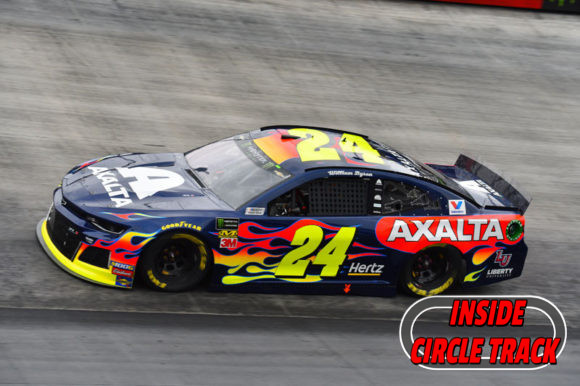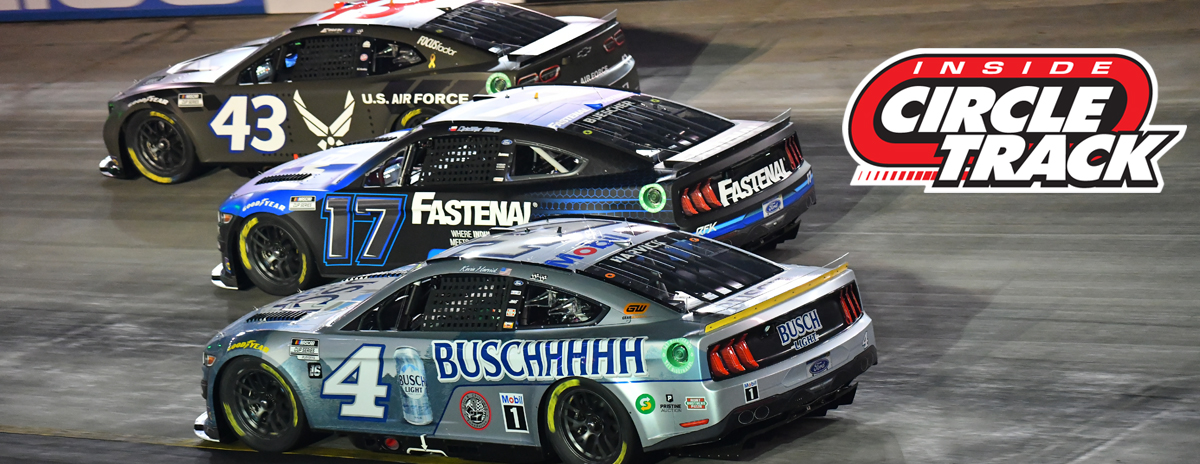
William Byron won a race for Hendrick Motorsports but was his season a failure?
In the immortal words of Talladega Nights movie character Ricky Bobby, “If you ain’t first, you’re last.” If that statement holds true, then where is the line drawn in the NASCAR Cup Series between success and failure? Fast forwarding from Ricky Bobby’s time to a time in which everything in the Cup Series seems to revolve around the NASCAR Playoffs, is there a definite point in which a driver and team’s season can be labelled as a failure?
As we approach the second round of playoff cuts, perhaps this is a time in which such labelling can be applied. Were those who didn’t make the playoffs at all failures? What about those who were cut after the first three races in the championship stretch run? Can a season finally be branded as successful when the semi-finals are made or is being a part of the Championship 4 necessary?
It would seem as if there are numerous qualifying factors at play here. For example, it is probably not a good look for a driver who didn’t make the playoffs at all yet has a teammate who not only makes the post-season but actually advances deep into the rounds.
This measuring stick may have played a role in the decision by Joe Gibbs Racing to part ways with driver Erik Jones at the end of the 2020 season. Three other cars from that organization not only made the playoffs but survived the first round of cuts. While Tyler Reddick might also fit into this same category being that Richard Childress racing teammate Austin Dillon is still alive in the playoffs, the rookie driver might be given a free pass here due to his first year status.
Can getting cut after the second round denote failure?
Clint Bowyer and Aric Almirola are in jeopardy of elimination after this weekend’s race on the Charlotte Roval. If in fact they do not make it any further while Stewart-Haas Racing teammate Kevin Harvick continues on, does it place the drivers of the No. 14 and the No. 10 Fords in danger of having their seasons termed a failure?
The situation at SHR is complicated further by the fact that both of those drivers who are in danger of missing the next round had contracts set to expire at the end of 2020. Almirola’s deal has been renewed already while Bowyer just announced his retirement from the driver’s seat on Thursday. Even though neither driver has yet to win a race, the fact that Almirola’s sponsor(Smithfield) has vowed to continue its backing of that team while no announcement was made regarding Bowyer will likely cause one season to be deemed more successful than the other due to outside circumstances.
And like the RCR situation, a rookie is also involved at SHR. Cole Custer won a race earlier in the season at Kentucky and somewhat unexpectedly made the NASCAR Playoffs as a result. Even though he was cut from championship contention early on, did that further add pressure on Bowyer?
What if a driver makes it to the NASCAR Playoffs as part of power team then falters early in the going while his high-profile teammates move on? That scenario describes the efforts of both Ryan Blaney and William Byron.
Team Penske’s Blaney started the playoffs off poorly and never really improved before he was eliminated at the first cut. Brad Keselowski and Joey Logano are both still alive representing Team Penske. Further, both of those drivers made more trips to victory lane than Blaney in 2020 and both are former NASCAR Cup Series champions.
Byron secured his place in the playoffs by winning the regular season finale at Daytona. However, his run was a short lived as he fell out of contention after the first three races. Hendrick Motorsports teammates Alex Bowman and Chase Elliott remain in the championship hunt.
So who among these drivers had a season that could be counted as a failure?
Does simply making the playoffs make a driver’s season successful? Does it matter how far a driver advances no matter what team he drives for or what his teammates do?
Ultimately, there are qualifications attached to each driver. Cole Custer’s season is likely to be counted as a success while Ryan Blaney’s season might very well be thought of a failure. A rookie will obviously be judged more favorably than a veteran and a driver who pilots a car for a so-called power team will not be allowed any excuses while a driver for a second tier organization.
Or is Ricky Bobby right? Maybe a season is only successful if the driver and team win the championship?
Richard Allen is a member of the National Motorsports Press Association
Respond to this piece on Twitter –> @RichardAllenIDR
or on Facebook –> InsideCircleTrack/Facebook
